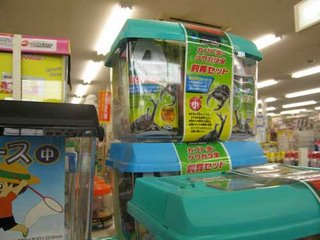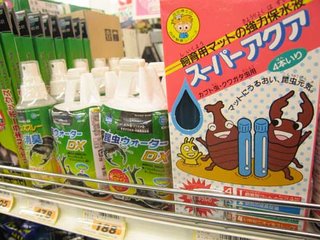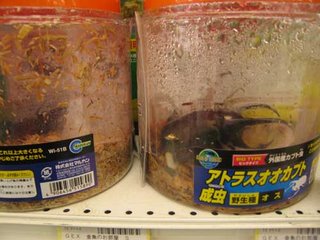Shaka
Shaka Zulu? Shaka Khan? Boom Shaka-laka? Nope. It's Shaka Shaka Potato.

Despite the Spartan English, it's pretty clear what you do. The fries come with a seasoning packet, spicy basil or American B-B-Q. You "in" the fries into the bag (note: in the event that the fries are served in the bag, which is always, instead of "inning" the fries you will want to "out" the napkins and seasoning packet). Next you "sprinkle" the seasoning in with the fries. Then you shaka like you just don't care.
The writing next to that little clock above the "Shaka Shaka Potato" indicates that from 2:00 PM on is "snack time." You will face cruel (but very polite) disappointment should you attempt to get your shaka shaka on before 2:00.
There is the stereotype of the American who travels to exotic lands only to eat nothing but McDonald's hamburgers. First off, most of the Westerners I've seen at Japanese McDonalds' have not been English speakers. Second, foreign McDonalds' are fascinating places. You can see what is important to the local culture by what they change. Likewise, what remains the same shows what aspects of the West local customers desire. The burgers are made with goat in India; in Thailand McD's is hangout for wealthy high schoolers; I hear one can purchase a glass of beer at the French McDonald's, and I'm not talking about a paper cup. In Japan you can get a bun made of rice. Recently they introduced the oddly phrased Ebi Filet-O sponsored by this homely lass. (Ebi means shrimp, and it is also this model's name.) The workers are polite, crisp, and professional. When this reporter ordered his Shaka Shaka Potato and a small coke, the coke was served immediately, but he had to wait on a new batch of fries. When the fries finally came, the cashier dumped his coke and prepared a fresh one, fearing melted ice and diminished fizz. That the Japanese love rice, sea food, and customer satisfaction are less than Earth-shattering observations. But what do we learn from their afternoon desire to shake a bag of potatoes?

Despite the Spartan English, it's pretty clear what you do. The fries come with a seasoning packet, spicy basil or American B-B-Q. You "in" the fries into the bag (note: in the event that the fries are served in the bag, which is always, instead of "inning" the fries you will want to "out" the napkins and seasoning packet). Next you "sprinkle" the seasoning in with the fries. Then you shaka like you just don't care.
The writing next to that little clock above the "Shaka Shaka Potato" indicates that from 2:00 PM on is "snack time." You will face cruel (but very polite) disappointment should you attempt to get your shaka shaka on before 2:00.
There is the stereotype of the American who travels to exotic lands only to eat nothing but McDonald's hamburgers. First off, most of the Westerners I've seen at Japanese McDonalds' have not been English speakers. Second, foreign McDonalds' are fascinating places. You can see what is important to the local culture by what they change. Likewise, what remains the same shows what aspects of the West local customers desire. The burgers are made with goat in India; in Thailand McD's is hangout for wealthy high schoolers; I hear one can purchase a glass of beer at the French McDonald's, and I'm not talking about a paper cup. In Japan you can get a bun made of rice. Recently they introduced the oddly phrased Ebi Filet-O sponsored by this homely lass. (Ebi means shrimp, and it is also this model's name.) The workers are polite, crisp, and professional. When this reporter ordered his Shaka Shaka Potato and a small coke, the coke was served immediately, but he had to wait on a new batch of fries. When the fries finally came, the cashier dumped his coke and prepared a fresh one, fearing melted ice and diminished fizz. That the Japanese love rice, sea food, and customer satisfaction are less than Earth-shattering observations. But what do we learn from their afternoon desire to shake a bag of potatoes?




